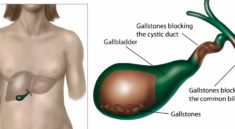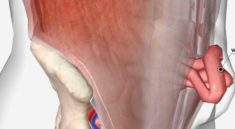INFORMATION
Umbilical hernia repair
An umbilical hernia is an abnormal bulge that can be seen or felt at the umbilicus (belly button). This hernia develops when a portion of the lining of the abdomen, part of the intestine, and / or fluid from the abdomen, comes through the muscle of the abdominal wall.
.
Description
You will probably receive general anesthesia (asleep and pain-free) for this surgery. If your hernia is small, you may receive local anesthesia and medicine to relax you. You will be awake but pain-free.
Your surgeon will make a surgical cut under your belly button.
- Your surgeon will find your hernia and separate it from the tissues around it. Then your surgeon will gently push the contents of the intestine back into the abdomen.
- Strong stitches will be used to repair the hole or weak spot caused by the umbilical hernia.
- Your surgeon may also lay a piece of mesh over the weak area (usually not in children) to make it stronger.
Umbilical hernia can also be repaired using a laparoscope. This is a thin, lighted tube that lets the doctor see inside your belly. The scope will be inserted through one of several small cuts. The instruments will be inserted through the other cuts.
Before the Procedure
You or your child may be asked to stop eating and drinking 6 hours before surgery. Make sure you tell your health care provider about any medicines, allergies, or history of bleeding problems.
Several days before surgery, you may be asked to stop taking:
- Aspirin or nonsteroidal anti-inflammatory drugs (NSAIDs), such as ibuprofen, Motrin, Advil, or Aleve
- Other blood-thinning medicines
- Certain vitamins and supplements
After the Procedure
Most umbilical hernia repairs are done on an outpatient basis. This means you will likely go home on the same day. Some repairs may require a short hospital stay if the hernia is very large.
After surgery, your provider will monitor your vital signs (pulse, blood pressure, and breathing). You will stay in the recovery area until you are stable. Your provider will prescribe pain medicine if you need it.
Outlook (Prognosis)
There is always a chance that the hernia can come back. For healthy people, the risk of it coming back is very low.
What to Expect at Home
If your doctor does not close your wound again with sutures, you need to care for it at home, since it may take time to heal. The wound will heal from the bottom to the top. A dressing helps absorb drainage and keep the skin from closing before the wound underneath fills in.
It is important to clean your hands before you change your dressing. You can use an alcohol-based cleanser. Or, you can wash your hands.
When to Call the Doctor
Call your doctor if:
- There is more redness, pain, swelling, or bleeding at the wound site.
- The wound is larger or deeper, or it looks dried out or dark.
- The drainage coming from or around the wound increases or becomes thick, tan, green, or yellow, or smells bad (which indicates pus).
- Your temperature is 100.5°F (38°C) or higher.
What is the recovery time for an umbilical hernia surgery?
After recovery, you can usually return to work within 2 to 3 days. You will not be able to lift anything over 10 pounds, climb, or do strenuous activity for 4 to 6 weeks following surgical repair of an umbilical hernia.
Is umbilical hernia surgery painful?
It’s usually possible to go home the same day as having an umbilical hernia repair. It’s normal to feel sore and uncomfortable immediately after surgery. Local anaesthetic, which numbs the area, will be injected before the end of the operation to reduce the pain. Painkillers will also be provided
Can I drive after hernia surgery?
It’ll usually be 1 or 2 weeks before you reach this point after having laparoscopy (keyhole surgery), although it may take longer after open surgery.
What happens if a hernia is left untreated?
Potential complications of a hernia. If left untreated, your hernia may grow and become more painful. A portion of your intestine could become trapped in the abdominal wall. This can obstruct your bowel and cause severe pain, nausea, or constipation.
Can an umbilical hernia cause weight gain?
Umbilical hernias also occur in adults, particularly those with health issues that cause increased pressure in the belly. Those issues may include obesity, pregnancy, chronic coughing or constipation, and difficulty urinating. Because they tend to grow bigger over time, umbilical hernias require treatment.
Can I climb stairs after hernia surgery?
There are no medical or physical restrictions on activity after surgery. That means it is OK to walk, climb stairs, lift, have sexual intercourse, mow the lawn, or exercise as long as it doesn’t hurt. In fact, returning to normal activity as soon as possible willmost likely enhance your recovery.





